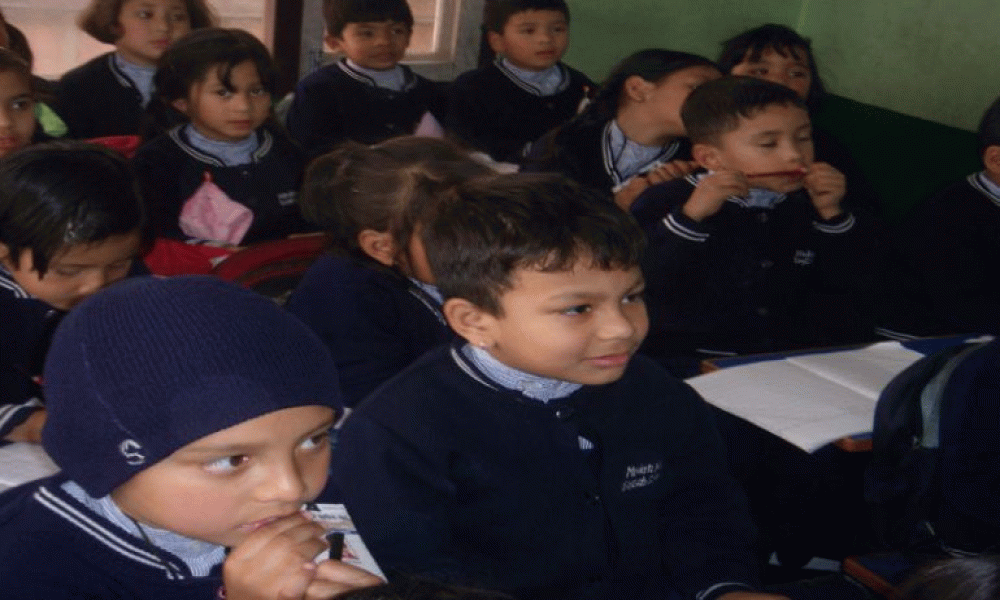Bhim Rai
After the then Prime Minister Madhav Kumar Nepal attended a global conference on tiger in Russia in 2009, the eminent linguist Prof Dr Yogendra Prasad Yadav reacted: "Political leaders are concerned about saving endangered tigers, but not dying languages."
Yadav's comment is still relevant, and it now better sums up Nepal's policy about mother tongues.
Nepal has recently adopted a new constitution, allowing future provinces to declare local mother tongues as official languages in their administrative areas. On the surface, it looks like a progressive constitutional provision. But it is not. The constitution envisions a commission to recommend which mother tongues can be used as official languages in which provinces. So the commission will have rights to sideline multiple mother tongues while picking up just one or two mother tongues. So there is not much hope about the new constitution preserving and promoting dying mother tongues.
Nepal has recently adopted a new constitution, allowing future provinces to declare local mother tongues as official languages in their administrative areas. On the surface, it looks like a progressive constitutional provision
The new constitution also says ethnic communities will have rights to open schools to teach their children in mother tongues. But it again fails to ensure the state's role and involvement in mother tongue education. It is certain that communities, without the support of the state, will fail to open schools.
So the new constitution has betrayed indigenous people. It is deceitful to say the least – it seems to be ensuring rights by one hand and taking back all those rights by another hand.
Many deride mother tongue education rights activists by arguing that the world has moved too far ahead and it is too late to move back. They say teaching English is important and mother tongue is not. They are right when they say English is important. But they are wrong when they say mother tongues are not important.
Every language that exists in the world is important, for they carry their own underlying linguistic structures, meaning and beauty. Language in itself is a huge repertoire of knowledge.
Every language that exists in the world is important, for they carry their own underlying linguistic structures, meaning and beauty. Language in itself is a huge repertoire of knowledge. And what we can teach in one language cannot be taught in another language. When a language dies, certain knowledge, culture, linguist pattern, way of communication and beauty of expression also die with it.
So preserving dying mother tongues is important. It is not just a political issue. It is an issue of preserving our rich cultural heritages. Saving a dying mother tongue is equally, or even more, important than preserving a centuries-old heritage.
Many countries have undertaken great efforts to preserve mother tongues. Papua New Guinea is one of the best examples of it. Nearly 900 mother tongues are spoken in this country, and 500 of them are used as means of communication in schools. A study was conducted to find out the impact of teaching children in their own mother tongues. The study was conducted at two different schools – one was English-language and other was mother-tongue. The result was astounding: children who learnt in their mother tongue turned out to be far more brilliant than those who studied in English.
Linguist Yadav explains why children who study in their own mother tongues tend to be smart. "Cognitive development process gets faster when children are taught in the language they speak in their hope," he says.
Linguist Yadav explains why children who study in their own mother tongues tend to be smart. "Cognitive development process gets faster when children are taught in the language they speak in their hope," he says.
We need to go as far as to Papua New Guinea or any other part of the world to know the importance of mother tongue education. We can find examples in our own country. A study conducted by Yadav in Bara district found that children speaking Maithali or other languages than Nepali had a high drop-out rate. When asked why they stopped going to school, most of them said: "It is difficult to understand what teachers teach."
On the contrary, children speaking Khas-Nepal language had no problem in learning in Bara. Is it a surprising result? Not really. Like how a newborn child gets more nutrition from breastfeeding than powder milk, children learn more in their own languages. The state must internalize this truth and act on it.
On the contrary, children speaking Khas-Nepal language had no problem in learning in Bara. Is it a surprising result? Not really. Like how a newborn child gets more nutrition from breastfeeding than powder milk, children learn more in their own languages.
Some say children belonging to indigenous communities also do not speak their mother tongues in urban areas. Yes, they are right. Children of Tharu, Rai, Limbu or Tamang who are born in Kathmandu and start talking to their mothers in Nepali languages may not need mother tongue education. In fact, they might fail if they are taught in their mother tongues. But those who are born in villages where mother tongue is used more than Nepali need to be educated in their own languages.
Some wonder how children taught in mother tongues will be able to compete with other students. They need to understand that mother tongue is, and should be, used only at the primary level. As children cross primary level, they gradually switch to other languages. But many still believe that mother tongue education is bad for social harmony and unity. It is ridiculously linked with separatist movement, too. We must get rid of this ill notion.









